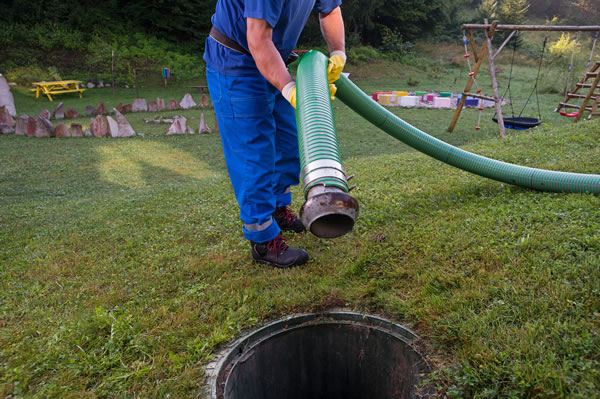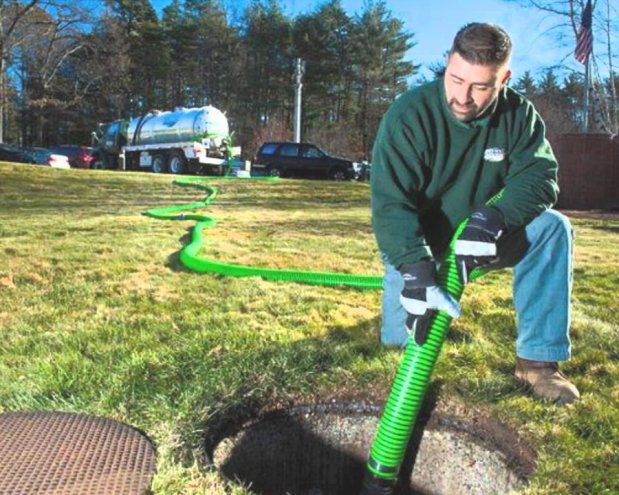
10
A septic tank plays a crucial role in managing wastewater for homes not connected to municipal sewage systems. Regular maintenance is essential to ensure its longevity and optimal functioning. In this article, we will discuss the importance of septic tank cleaning and provide valuable tips for homeowners to keep their septic systems in top condition.
Regular septic tank pumping and cleaning are vital for maintaining a healthy and efficient septic system. Over time, solid waste accumulates at the bottom of the tank, leading to the formation of sludge. Without proper cleaning, this sludge can cause blockages, resulting in backups, foul odors, and even costly repairs. Additionally, neglected septic tanks can contaminate groundwater, posing serious environmental and health risks. To avoid these issues, homeowners should engage in proactive septic tank maintenance.
Septic tank pumping is a crucial maintenance task that should be carried out by a professional septic company. The frequency of pumping depends on factors such as household size, tank size, and water usage. As a general guideline, it is recommended to have your septic tank pumped every three to five years. This process involves removing accumulated solids and sludge, allowing the tank to function properly. Regular pumping prevents backups, reduces the strain on the system, and extends its lifespan.
Regular inspections of your septic system can help identify potential issues before they become major problems. Hire a qualified septic company to inspect your tank, pipes, and drain field. They can assess the overall condition, identify any leaks, and recommend necessary repairs. Early detection and timely repairs can save you from expensive septic tank repair or replacement costs down the line.
Conserving water is beneficial for both the environment and your septic system. Reduce water consumption by fixing leaks, using efficient appliances, and being mindful of water usage. Excessive water can overload the septic system, leading to premature failure. Additionally, avoid flushing non-biodegradable items or chemicals down the toilet or sink, as they can disrupt the natural balance within the tank. Use septic-safe cleaning products and avoid excessive use of antibacterial soaps, which can kill beneficial bacteria in the tank.
The drain field is an essential component of a septic system that is added during septic tank installation, as it filters and treats the wastewater before it enters the groundwater. Avoid parking vehicles or installing heavy structures over the drain field to prevent soil compaction. Direct surface water away from the drain field to prevent oversaturation. Planting trees and shrubs near the drain field should be avoided, as their roots can damage the pipes. If you notice any signs of drain field issues, such as soggy areas or foul odors, contact Charlotte Septic Pros for inspection and repairs.
A clean and well-maintained septic tank is vital for the smooth operation of your home's wastewater management system. By following these essential tips, including regular septic tank pumping, inspections, water conservation, and proper septic tank installation, homeowners can avoid costly septic tank repairs, ensure the longevity of their septic system, and contribute to a healthier environment.

12
A single slow drain in your home can feel like a minor inconvenience. Maybe the sink takes a little longer…
Read more
05
Are Slow Drains a Septic Issue or Just a Clog? Slow drains are one of those household problems that start…
Read more
02
What Septic Service Techs See That Homeowners Miss Most homeowners only think about their septic system when something goes wrong.…
Read more
21
Simple Habits That Protect Your Septic System A well-functioning septic system does its job quietly, but the moment something goes…
Read more
14
Pump Now or Pay Later: The Real Cost of Skipping Maintenance A properly functioning septic system is easy to forget…
Read more
11
Why Your Septic System Always Acts Up at the Worst Time Homeowners often feel that septic problems strike at the…
Read more
04
Early Warning Signs Your Septic Tank Needs Pumping For homeowners who rely on a septic system, routine maintenance is not…
Read more
29
Why Does My Septic System Smell Fine One Day and Terrible the Next? If you own a home with a…
Read more
19
Is Your Septic System Overdue? Simple Home Checks You Can Do Today For many homeowners, the septic system is a…
Read more
13
5 Signs Your Septic Tank Is Overdue for Pumping Your septic system works quietly behind the scenes, managing wastewater from…
Read more